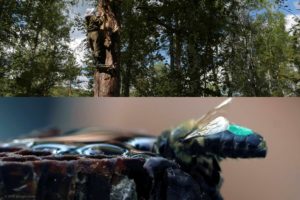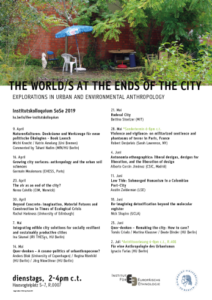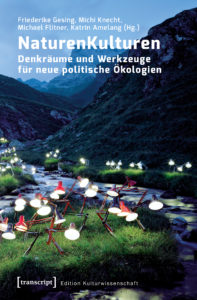Jenny Lisa Krieg (Bonn): Die Vermessung von Tieren: Fürsorge, Gewalt, und Technologien des Messens
18 Nov 2019 (Mon) | 12-14h | SFG 2210 (artec)
Was passiert beim Messen von Tieren? Biolog_innen, Taxonom_innen, und Naturschützer_innen messen Tiere auf unterschiedliche Weise: Sie zählen die Schuppen von Geckos, vergleichen die Form von Knochen und die Sequenzen von Genen, oder messen die Länge von Schildkröten-Panzern. Dabei wird die körperliche Materalität von Tieren lesbar gemacht, übersetzt. Unterschiedliche Arten zu messen haben dabei Implikationen: Eine Gewebeprobe kann von einem lebenden Tier genommen werden, Schuppen, allerdings, können nur an einem toten Tier gezählt werden. „Only in death do most animals pause long enough for our analytical minds to torture some truths out of them“, sagt Asma treffend (2001: 27). Beim Messen werden also nicht nur Daten produziert, es passieren auch viele andere Dinge: Es werden Beziehungen hergestellt, es wird sich „gesorgt“, und es wird Zwang ausgeübt, der bis zum Tod führen kann. In Konversation mit Foucault’s Ansätzen zu Biopower und Biopolitics sowie multispecies-Konzepten von „care“ und „violent care“ werde ich Ergebnisse vorstellen aus meiner ethnographischen Feldforschung auf Mayotte und Mauritius, und in deutschen Laboren, mit Biologinnen, Geckos, und Schildkröten.
Daniel Münster (München/Bremen): The Nectar of Life: Fermentation and the ambivalences of Natural Farming in India
19 Nov 2019 (Tue) | 18-20h | Rotunde
*in cooperation with the colloquium of the Department of Anthropology and Cultural Research
In response to ecological and financial crisis, small-scale farmers in India are experimenting with ferments as a way to recuperate their fields from decades of chemical inputs and make them financially more autonomous. This paper focusses on jīvāmṛta, the “nectar of life” a fermented preparation brewed by so-called Zero Budget Natural Farmers (ZBNF) out of the urine and dung of native cows. The nectar of life is the cornerstone of a system of alternative agriculture that was invented by farmer, scientist, and guru Subhash Palekar. ZBNF is based on farmers caring for soil as a living organism with the help of beneficial microbes. This paper shows how the movement’s practice and theory of fermentation performs an ontological-political shift from mainstream, post-Green Revolution, agricultural science and practice in India, towards a micro centric cosmology of humans, cows, plants, beneficial microorganism and elements working together for mutual benefit. However, this symbiotic reconceptualization of more-than-human health on the farm is also implicated in what I call bionativist critique. The native cow (Bos indicus) as the key provider of microbial abundance connects ZBNF not only with critique of mainstream agriculture and of epistemic and biological imperialism, but also with Hindu nationalist discourses of cow protection. Focusing on the making, the theory and the context of jīvāmṛta this paper raises concerns about the implications of a remarkably sophisticated agro-ecological cosmology with patriarchal metaphors and bio-nationalist conspiracy theories about alien plants, animals and sciences.


